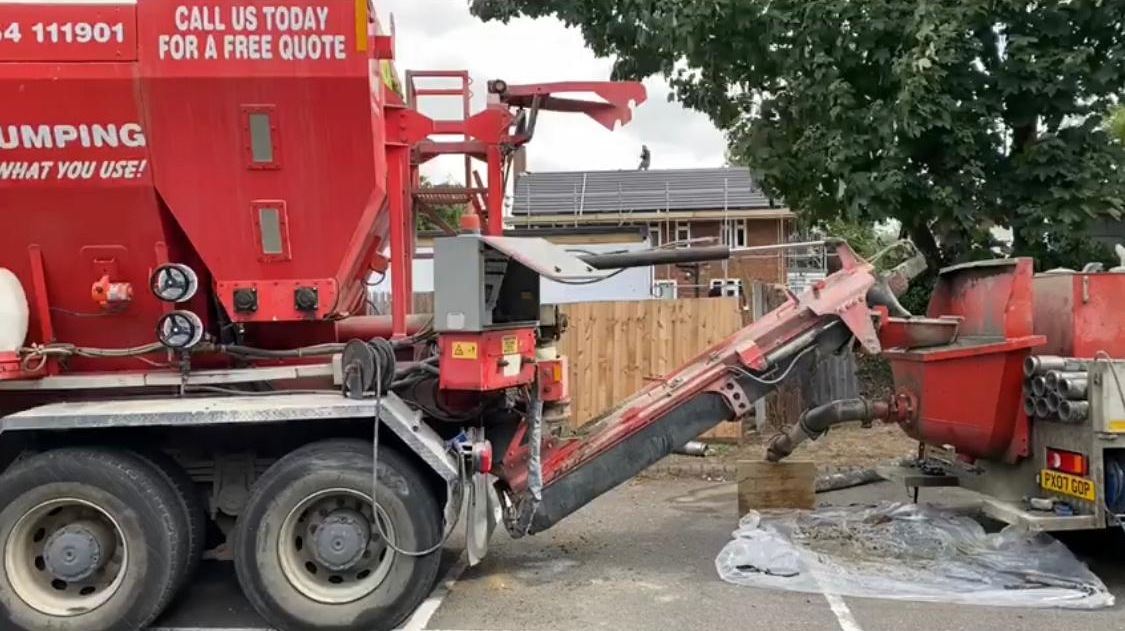Concrete Pumps: Mastering Efficiency

Concrete Pumps
Concrete pumping offers several benefits compared to traditional methods of pouring concrete. Here are five of them:
Efficiency: Concrete pumping allows for faster and more efficient concrete placement than manual methods like wheelbarrows or cranes. With pumping, concrete can be delivered directly to the desired location, even in hard-to-reach areas or at significant heights, reducing the need for manual labour and speeding up the construction process.
Accuracy and Precision: Pumping concrete enables precise material placement, resulting in better control over the flow and distribution. This accuracy is particularly crucial in projects with intricate designs or areas where space is limited, minimising waste and ensuring that the concrete fills the formwork uniformly.
Cost-effectiveness: While the initial investment in concrete pumping equipment may seem significant, it often translates into cost savings in the long run. The faster placement and reduced labour requirements can lead to lower overall project costs, as well as decreased potential for rework or delays due to inaccuracies.
Safety: Concrete pumping can enhance safety on construction sites by reducing the need for manual handling of heavy loads and minimising the risks associated with transporting concrete using traditional methods. By keeping workers away from potentially hazardous areas, such as trenches or elevated platforms, pumping can help prevent accidents and injuries.
Versatility: Concrete pumping is highly versatile and can be used in a wide range of construction projects, including residential, commercial, and infrastructure developments. Whether it's pouring foundations, walls, slabs, or even underwater structures, pumping offers flexibility and adaptability to meet the specific requirements of different applications.
Overall, concrete pumping provides numerous advantages in terms of efficiency, precision, cost-effectiveness, safety, and versatility, making it a popular choice for modern construction projects.
Choosing RKB Concrete for your domestic project offers several advantages:
- Experience and Expertise: RKB Concrete brings years of experience and expertise in the concrete industry. Our team consists of skilled professionals who understand the nuances of domestic projects, ensuring quality results that meet your specific requirements.
- Quality Materials: We prioritise the use of high-quality materials to ensure the durability and longevity of your project. From concrete mixes to additives and reinforcements, we source materials from trusted suppliers to deliver superior results.
- Advanced Equipment: RKB Concrete invests in state-of-the-art equipment, including concrete pumps, mixers, and finishing tools, to streamline the construction process and achieve optimal efficiency and precision.
- Customised Solutions: We understand that every domestic project is unique, and we tailor our services to suit your needs. Whether you're building a driveway, patio, foundation, or other structures, we work closely to develop customised solutions that meet your specifications and budget.
- Timely Completion: We value your time and strive to complete projects within the agreed-upon timelines. Our efficient processes and experienced team enable us to deliver results promptly without compromising quality.
- Customer Satisfaction: At RKB Concrete, customer satisfaction is our top priority. We maintain open communication throughout the project, addressing any concerns or questions you may have to ensure a smooth and hassle-free experience from start to finish.
- Competitive Pricing: We offer competitive pricing for our services without compromising quality. Our transparent pricing structure and detailed quotes help you understand the costs involved upfront, allowing for better budget planning.
Overall, choosing RKB Concrete for your domestic project ensures professionalism, quality craftsmanship, and excellent customer service, making us the ideal partner for bringing your vision to life.


